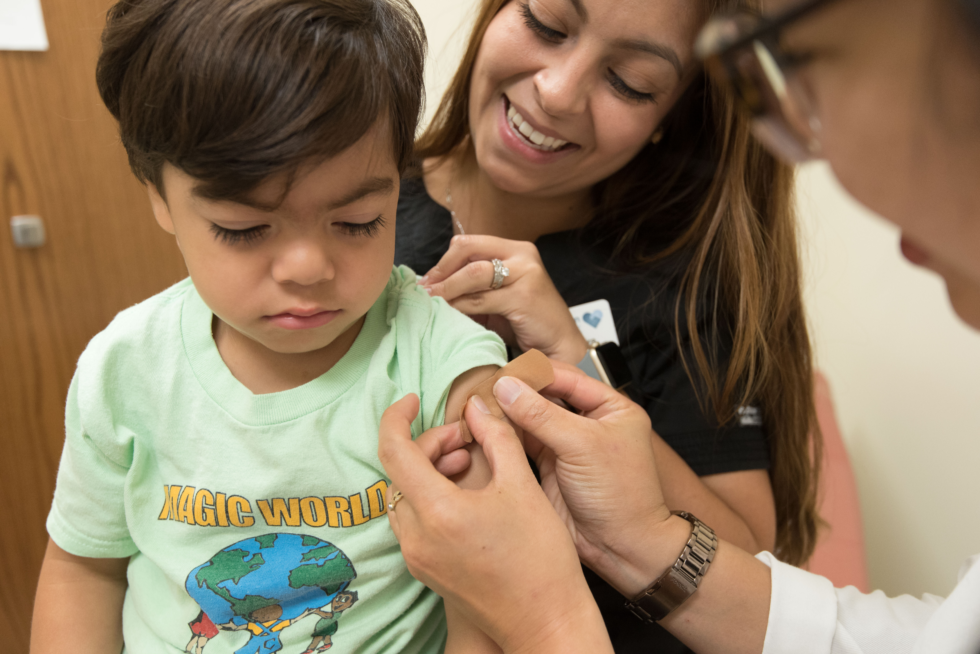
Caption
The state argued the children needed the immunizations to facilitate their foster care placement, education, and health care.
Credit: Scott Housley/Centers for Disease Control and Prevention

The state argued the children needed the immunizations to facilitate their foster care placement, education, and health care.
A juvenile court must reevaluate the sincerity of parents’ objections to their children’s vaccinations, the state Supreme Court ruled Tuesday.
At issue is whether children in temporary state custody can be immunized with routine childhood vaccines over their parents’ religious objections — and how to decide if those objections are sincere or not.
The three young children in this case (now ages 2, 4, and 6) were removed from their parents’ care last year due to the father’s alleged violence. The removal was temporary, with a plan in place to reunify the family after the parents met certain conditions.
When the parents learned of the state foster care agency’s plans to have the children immunized, they asked a Forsyth County Juvenile Court judge to stop the state from going forward, citing religious and philosophical objections to immunization.
The state argued the children needed the immunizations to facilitate their foster care placement, education, and health care.
The juvenile court judge denied the parents’ request, finding their religious objections insincere. The parents failed to regularly attend church, lacked association with a “particular religion,” and held secular objections to vaccination, the judge said.
On Tuesday, the state Supreme Court ruled unanimously that the juvenile court applied the wrong standards for evaluating the sincerity of the parents’ objections to immunization.
The case will now be returned to the juvenile court for another look using the new guidance.
When the juvenile court weighs the parents’ sincerity, it should use a “light judicial touch,” wrote Supreme Court Presiding Justice Nels S.D. Peterson.
Peterson provided some factors the lower court could consider when deciding whether the parents’ religious objections were “truly held.”
These included length of religious belief, amount of knowledge, reliance on religious texts and teachings, and “whether [the parents] have wavered in their actions related to vaccination.”
The state Department of Human Services (DHS), which oversees foster care, changed its policy on parents’ objections to vaccination while this case was pending.
DHS Commissioner Candice Broce sent a memo June 1 directing employees not to seek immunizations for any child in temporary custody if the child’s parents hold a sincere religious objection.
Lawyers for the agency asked the Supreme Court to dismiss the case, saying the new policy made the case moot. But the Supreme Court Tuesday rejected that argument.
“[The] new policy is not legislative in nature; it is an agency memorandum,” wrote Peterson.
There is no guarantee the agency could not change its policy again in the future, the court said.
This story comes to GPB through a reporting partnership with Capitol Beat News Service, a project of the Georgia Press Educational Foundation.